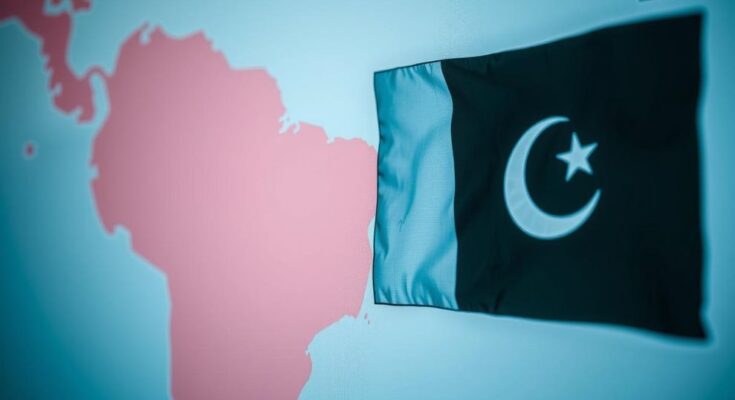Argentina’s recent economic reforms under President Javier Milei have drawn parallels to Pakistan’s struggles, especially regarding inflation and bureaucratic regulations. While Milei’s strategies demonstrate a potential path for Pakistan’s recovery, his controversial views on certain historical and ideological aspects call for careful scrutiny in the pursuit of equitable economic reform.
In the realm of economic recovery, Argentina presents a case study that resonates with Pakistan’s current struggles. Once a flourishing economy, Argentina has faced repeated upheaval, necessitating interventions from the International Monetary Fund (IMF). The ascent of Javier Milei as president marked a pivotal shift, resulting in a significant stabilization of the economy. Notably, inflation, which soared to a staggering 211 percent in December 2023, has dramatically been reduced to single digits under his administration—a transformation that calls to mind the aspirations of those in Pakistan who yearn for similar change.
Milei’s economic strategies, such as trimming bureaucratic excess and fostering a business-friendly environment by dismantling onerous regulations, have garnered attention. His advocacy for lower inflation and the abolition of price controls is seen as a means to restore purchasing power, potentially alleviating poverty. These insights resonate deeply, particularly in Pakistan, where calls for a Milei-like figure are increasingly heard. Moreover, Milei’s comments regarding discretionary government transfers and the corrupting influence of taxpayer-funded initiatives highlight systemic issues that parallel Pakistan’s circumstances.
However, Milei’s perspectives are not without controversy. His characterization of the United States and Israel as exemplars of liberal democracy raises questions among observers, especially regarding his stances on freedom and justice in the context of the Palestinian struggle. Furthermore, his reliance on a Eurocentric historical narrative overlooks significant contributions from various civilizational contexts, skewing the understanding of economic progress. Assertions that life under the Industrial Revolution surpassed that of Roman emperors lack nuance and fail to consider the harsh realities faced by the working class during that era.
While Milei’s affiliation with Austrian economics and figures like Milton Friedman reflects a commitment to liberal ideologies, his interpretations often diverge from mainstream economic thought. For instance, confounding the implications of a gold standard or misrepresenting historical economic events complicates his arguments. Additionally, his advocacy for “dollarisation” raises concerns about national sovereignty, contradicting his professed ideals of freedom.
For Pakistan, there exists an appetite for leadership that embodies Milei’s willingness to challenge the status quo and navigate the complexities of economic reform. Nonetheless, this leadership must be tempered with a comprehensive understanding of the historical and ideological nuances of economic principles—free from biases that could undermine its effectiveness.
In conclusion, while Argentina’s experience provides valuable lessons that could invigorate Pakistan’s economic landscape, the nuances of Javier Milei’s approaches warrant careful consideration. Pakistan would benefit from adopting strategies that genuinely address its unique challenges while ensuring that the intellectual underpinnings of economic policy are robust and inclusive. It is essential to pursue a leadership model that fosters genuine freedom, competently tackles corruption, and avoids the pitfalls of ideologically skewed notions of history.
The economic trajectory of Argentina mirrors that of Pakistan, both nations having once enjoyed considerable prosperity only to be mired in severe economic challenges requiring IMF intervention. Recent developments in Argentina under the leadership of Javier Milei serve as a critical lens through which to examine potential solutions for economic malaise in Pakistan. Inflation and governmental regulations are two pivotal areas of focus for Milei, whose approaches have sparked discussions on whether similar measures could benefit Pakistan. However, his ideologies also provoke scrutiny regarding their historical and ethical implications, essential for understanding the broader context of economic policy.
In summary, Argentina’s economic reform under Javier Milei illustrates potential pathways for Pakistan to navigate its own economic hurdles. Emphasizing the significance of tackling inflation and governmental inefficiencies resonates well with Pakistani aspirations for improvement. However, careful consideration of Milei’s ideological stances and historical interpretations is crucial in crafting a suitable economic reform strategy for Pakistan. Establishing a leadership framework that is both reformative and grounded in comprehensive understanding is paramount for achieving sustainable economic growth.
Original Source: www.dawn.com




